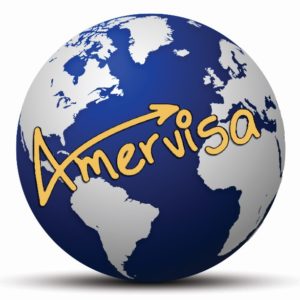E1, E2, Visas for Treaty Traders (E1) and Treaty Investors (E2)
 The United States has signed Treaties of Commerce and Navigation with a host of foreign countries. Please refer to the List of Treaty Countries for more information on which countries have treaties with the United States [see article]. Aliens who are from a treaty country and who meet the requirements set forth in statutes and regulations are eligible for E-category visas. The E1 visa is available for treaty traders and the E2 category is available for treaty investors.
The United States has signed Treaties of Commerce and Navigation with a host of foreign countries. Please refer to the List of Treaty Countries for more information on which countries have treaties with the United States [see article]. Aliens who are from a treaty country and who meet the requirements set forth in statutes and regulations are eligible for E-category visas. The E1 visa is available for treaty traders and the E2 category is available for treaty investors.
TREATY TRADERS (E1 VISAS)
Treaty traders are defined as those who carry on substantial, principal trade in goods, services and/or technology between the country of their citizenship and the United States. Trade is defined as the existing international exchange of items between the USA and the treaty country. This means that there should be a continuous, sizable flow of international trade items, with numerous exchanges of valuable items at a time. Trade items include, but are not limited to: goods, services, international banking, insurance, transportation, tourism, technology and transfer of technology, and certain news-gathering activities. Treaty traders and their qualified employees may only work in the activity for which the classification was approved, with narrow exceptions existing for work for a parent or a subsidiary company. Should there occur a substantive change in the terms or conditions of the treaty trader’s employment, the United States Citizenship and Immigration Services (USCIS) must be notified by the filing of a new classification application with fees.
TREATY INVESTORS (E2 VISAS)
Treaty investors are defined as those who direct operations of a business in which they have invested, or are actively investing, a substantial amount of money or capital in a bona fide U.S. business. A bona fide business may be commercial or entrepreneurial in nature, and it must have capacity to generate above-marginal profits. To meet the criteria, a treaty investor must be coming into the U.S. for the sole purpose of developing or directing an investment enterprise, and must either have a position of control, such as manager or director, or have at least a 50% ownership of the enterprise. A qualified investment must be substantial to ensure the investor’s commitment to the success of the enterprise, and must bear an element of commercial risk and be placed with an intention of generating a profit. It is understood that a qualified investment may fail, and bring about a partial or total loss of the invested capital. To be eligible, a treaty investor must show that the funds invested have not been gained from a criminal activity.
